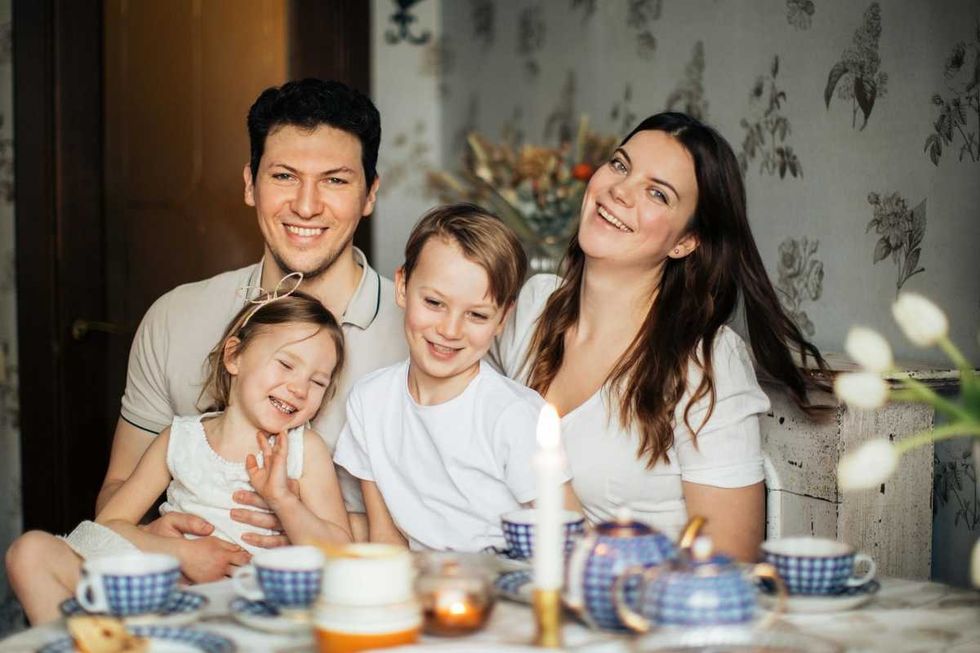As also depicted in Disney’s “Inside Out,” a major portion of an individual’s life is just a replay of the “core memories” and patterns they acquired during childhood. In childhood, when the child’s mind is a blank canvas, parents act like mirrors. What they reflect or project, accumulates in the memory bank of a child, which later determines their deepest subconscious beliefs, self-worth, and main personality traits. So, it becomes extremely crucial for parents to pay attention to what memories they instill in their child’s brain. In a recent post on Instagram, psychotherapist Carol Kim (@parenting.resilience) shared “five core memories kids usually remember from their childhood.” Parents can take some cues from this enlightening list to raise healthy, empowered, and happy individuals.

Core memories are the key moments or defining moments that leave a lasting impression on children’s thought processes. “As parents, our words and actions can leave emotional imprints on our children, even when specific events fade from memory,” Carol described in the post, and elaborated, “Feeling loved and supported helps children develop self-esteem, confidence, and a sense of belonging, helping them to trust others and navigate life’s challenges.” Here is the list of five “core memories” Carol shared, that children remember from their childhood.
1. Quality time together
Carol explained that being present with one’s child is very important for the child to develop a positive memory. “Taking some time to focus only on your child is very special. Playing games, reading books, or just talking can create strong, happy memories. These moments show your child that you are present with them,” she explained. Spending quality time with kids makes kids feel loved and valued, wrote Carol. “Spending time together shows your child they are important and loved, which boosts their self-esteem and makes them feel secure.”

2. Words of encouragement
Carol explained that children need words of inspiration and encouragement to propel them forward in their lives. “Encouraging words can greatly impact your child during both good times and tough times. Kids often seek approval from their parents and your positive words can be a strong motivator and source of comfort.” Knowing that their parents support them, children grow up to become self-confident and capable within. It can strengthen their self-belief, which is so important in challenging times.
3. Family traditions
The narrative that runs in a child’s head is just a story that is made up of the memories they spent with their families. So, Carol said, that family traditions “create a feeling of stability and togetherness. These rituals, like holiday celebrations, weekend routines, or annual trips, give structure and something to look forward to, strengthening family bonds.” Being part of family traditions can provide children with a story larger than just their individual lives. It gives them a sense of belonging, and purposefulness, and embeds in them a sense of responsibility, and that they are important, that they add value to someone else’s life too.

4. Acts of kindness
Kindness is like a domino. One kind act triggers a cascade of another act of kindness, and so on. “Seeing and doing kind things leaves a strong impression on children. It shows them the importance of being kind and caring. They remember how good it feels to help others and to see their parents helping too,” wrote Carol. Noticing parents participating in random acts of kindness ingrains an attitude of abundance, empathy, and caring in the child. Plus, gestures of kindness further make them proud and happy about themselves. They feel good about themselves and they feel good about others. It's always a win-win scenario when the child learns to be kind and human.
5. Comfort during tough times
When parents pay attention to showing their support, especially during tough times, children will always remember that when they grow older. Explaining this, Carol said, “Supporting your child when they’re sick, scared, or upset is very important because these are the times they need you the most. Your presence and reassurance during these moments leave a lasting impact.” Raising emotionally secure individuals is pivotal because it determines how these children will behave in their future relationships, as well as with other people. The love and reassurance that a child receives from their parents can never be underestimated.

“Notice how creating good memories doesn’t require expensive toys or lavish family trips—your presence is the most valuable present you can give to your child,” Carol wrote in the caption. She also emphasized that if a parent finds it difficult to provide these five things to their child, it could probably be because they may be feeling overstimulated, or struggling with their past trauma. Labelling these challenges can help them identify what’s going wrong and they can then sort it out. The main thing, first and foremost, is to step out of denial and face the reality of the situation. In the end, there is no bad parent, there is only a struggling parent and a learning parent. Describing this, Carol wrote, “Parenting isn’t about being perfect; it's how we manage our imperfections.”























 There are plenty of low or no-cost date ideas.Canva
There are plenty of low or no-cost date ideas.Canva Couples can energize their relationship by finding bonding moments that reignite their wonder.Canva
Couples can energize their relationship by finding bonding moments that reignite their wonder.Canva
